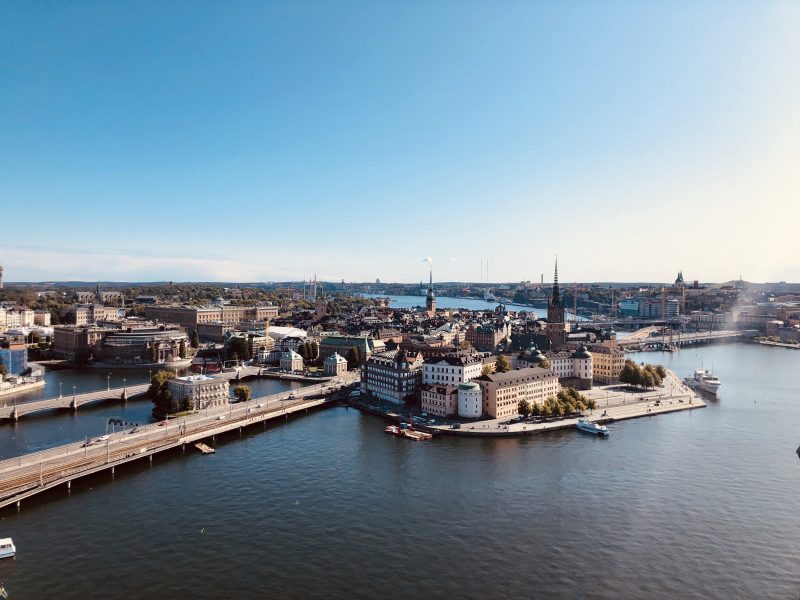
5 reflections after completing year 1 of the HPP program
Year one has come and gone, and within the last few weeks I have been reflecting on my first year in the Health Promotion and Prevention (HPP) program and things that would have been helpful to know before starting. Here are my top 5 reflections after year one of the HPP stream and being a student at KI in general.
1. Lots of group work
Group work is a central component for all studies at KI, not just our program. A lot of the curriculum and learning outcomes are designed to include group work. This is a big advantage in our program since we are largely made up of international students from around the world with various academic and cultural backgrounds. Therefore, the group work provides an opportunity to learn from each other which enriches our learning and depth of knowledge in public health. A disadvantage to this is that group work can be frustrating for various reasons such as scheduling, differing opinions, different learning styles and sometimes it can feel inefficient. All of these factors are just the nature of working with others and learning to mediate these difficulties will only prepare us to work well in teams in our future career.
2. The two streams are one
In the first year of the program, both the Epidemiology and the HPP stream have the majority of the classes together. There is only one 3-week course that is taught separately in the first year. The second year of the program is when the streams branch off more. This is an advantage because the courses that we shared are fundamental to the discipline of public health and they are designed to develop and strengthen technical skills that are invaluable aspects of our public health toolkit. A disadvantage is that the majority of the classes are epidemiologically focused, which for the HPP students, means they may have to find and expand on their academic interests/topics elsewhere. Some students sought out external experiences, either academic or practical, in areas of their interest by volunteering with external organizations, doing research with KI professors, working, etc.
3. Time for extracurriculars and leisure
KI does a good job of scheduling your school week for you. The program is considered “full-time” which means that Monday-Friday, our week is scheduled 9:00 – 4:00 p.m., however this includes class time, group-work or time for independent study and reading. This is an advantage because they give you time to work on your projects and assignments, which means outside of the “school week” you have time to get involved in other things (clubs, part-time job, sports, travel etc.). One disadvantage is that the schedule changes for each class which range from 3-week to 5-week blocks and each block is only announced 2 weeks before the start of the new course. This varying schedule can sometimes make it difficult to feel like you have a routine, plan work schedules with employers, or plan ahead for traveling or leisure activities.
4. KI is very research-focused
KI is a research institution and the majority of our classes are rooted in learning about research theory and teaching us real skills used in research (statistical coding, questionnaire design, etc.). This is an advantage since these skills will be very helpful for our final thesis and are skills that we will undoubtedly use in our future public health careers. However, this can also be disadvantageous because not all the students want to pursue research-focused jobs or future studies (i.e. PhD). Particularly in the HPP steam, it can sometimes feel like we are learning about public health topics within a limited scope.
5. KI is a close-knit school
KI is a smaller school and all students are studying something related to health, so many people have common interests. An advantage to having small classes is that it allows us to get to know people well and form close friendships with our classmates. Additionally, because there are many international students in the global master’s programmes, you meet people from other programs in orientation, on-campus or KI student housing. This is fun because you feel like you get to know people around campus and ultimately this provides us with a platform to not only build a professional network, but also make lasting friendships. A small university could be a disadvantage since you have a smaller pool of people to meet and because you share every lecture with your small class, certain frustrations can surface after spending that much time with anyone.
Overall, it was a great first year and I cannot believe it is already over. I am so grateful for the people I met and I am thrilled to be back together in the fall. If you have any questions at all, please reach out lauren.elizabeth.wiebe@stud.ki.se
Thanks for reading!
Lauren
Lauren Wiebe- Health Promotion and Prevention
Hi! I am Lauren, I was born and raised in Canada, and you probably will hear me talking about how much I love Canada, especially the mountains. I am the blogger for the Master's Public Health Sciences Health Promotion and Prevention stream and I am excited to share my experiences with you!

0 comments